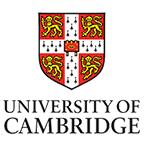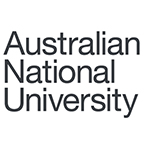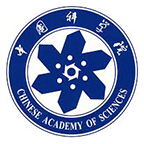
University of Illinois
RIPE is fittingly headquartered in the Carl R. Woese Institute for Genomic Biology at the University of Illinois Urbana-Champaign (UIUC), a fixture in the history of photosynthesis research. According to the 2021-22 U.S. News & World Report's America's Best Colleges rankings, UIUC is the number 15 ranked public university in the United States. Steve Long, the Ikenberry Endowed Chair of Plant Biology and Crop Sciences, is the RIPE Director. His expertise ranges from plant molecular biology to in silico crop design and field analyses of the impacts of atmospheric change on crops. Also at Illinois is RIPE Deputy Director Donald Ort, the Robert Emerson Professor in Plant Biology and Crop Sciences. Ort’s research seeks to understand and improve plant growth and photosynthetic performance in changing environmental conditions, such as increasing CO2 temperature and drought. All RIPE researchers have access to a variety of cutting-edge research facilities located at UIUC, learn more about them here.

University of Cambridge
The University of Cambridge is in the center of one of the most significant technology clusters in the world. Cambridge fosters the collaboration of business and academia and, having been founded in 1209, is the fourth-oldest university in the world. Their plant science department aims to ensure that top-notch discoveries in science help address the key issues surrounding environmental protection, sustainable bio-based economy development, and global food security. Johannes (Wanne) Kromdijk is the Head of the Environmental Plant Physiology Group and a university lecturer at Cambridge. As a plant physiologist he specializes in CO2 fixation and stable isotope discrimination.

Commonwealth Scientific and Industrial Research Organization
The Commonwealth Scientific and Industrial Research Organisation (CSIRO) is Australia’s national science agency and one of the world's largest multidisciplinary technology and research organizations. They focus on creating a better quality of life through improvements to the economic system and environment. CSIRO is supporting cropping industries to feed Australians and improve their proportion of top-rate agrifood markets and to farm profitably and sustainably. The research of RIPE team members, Jose Barrero and TJ Higgins focuses on agricultural biotechnology, particularly in improving yield and resistance to pests in food legumes. Through their research, farmers in Sub-Saharan Africa can produce a higher crop yield due to the pest protection added to the plants through biotechnology.

Lancaster University
Known for their outstanding research and instruction, Lancaster University is a widely respected institution of higher learning in the UK. Lancaster was one of the first universities in the world to establish a Department of Environmental Science. Elizabete Carmo-Silva is a professor in crop physiology for the Lancaster Environment Centre (LEC). She is an expert on the regulation of Rubisco activity and leads a research team that aims to understand and improve the efficiency of photosynthesis in response to fluctuations in the environment. Martin Parry is a research leader and professor in plant science for food security within the LEC and is an internationally recognized scientist. He has more than 40 years of experience focused on attaining improved efficiency of crop production, yield, and quality. The overall goal of our Lancaster researcher’s work is to increase the rate of Rubisco response to light and improve the assimilation of carbon in natural environments which will allow RIPE crops to grow and produce food more efficiently.

University of California, Berkeley
The University of California, Berkeley is the flagship campus in the University of California system and is consistently ranked as one of the top public universities in the world. Berkeley has outstanding programs in biology and environmental sciences, providing the world with tools to conserve the earth’s natural resources and ensure economic and environmental sustainability for future generations. Kris Niyogi, a Howard Hughes Medical Institute (HHMI) Investigator, Plant and Microbial Biology professor, and a faculty scientist in the Molecular Biophysics and Integrated Bioimaging Division of Lawrence Berkeley National Laboratory, leads RIPE efforts at Berkeley. RIPE researchers in the Niyogi Lab are focused on accelerating recovery from photoprotection as an approach to improving photosynthesis, and they work closely with RIPE colleagues at Illinois, Cambridge, and CSIRO.

University of Essex
The University of Essex is in the global top 100 universities according to the Times Higher Education Impact Rankings. The School of Biological Sciences at Essex works to improve crop yield for consumption and to understand the effects of climate change on ecosystems. As one of the UK's longest established whole plant physiology and photosynthesis groups, Essex has long been at the forefront of plant productivity research. Christine Raines is a professor at the School of Biological Sciences at the University of Essex, where she served as head of the department from 2011-2017. Work in the Raines’ lab focuses on the molecular physiology of the Calvin Benson cycle and identified the enzyme SBPase as a major control point, exercising strong control over CO2 assimilation in tobacco, wheat, and Arabidopsis plants. This work also showed that photosynthetic capacity and yield are increased in transgenic tobacco plants with elevated SBPase. Tracy Lawson is a professor of Plant Physiology, Director of the Plant Phenomics Lab, as well as Director of Impact for the School of Life Sciences at the University of Essex. Lawson is a plant physiologist specializing in photosynthesis, stomatal behavior, and plant water-use efficiency.

Donald Danforth Plant Science Center
The Donald Danforth Plant Science Center is an independent, not-for-profit research institute dedicated to plant science located in the Olivette community of Saint Louis County, Missouri, United States.

USDA Agricultural Research Service
The United States Department of Agriculture (USDA)'s mission is to give guidance on food, agriculture, natural resources, rural development, nutrition, and other related issues based on public policy. The Agricultural Research Service (ARS) is the USDA’s chief scientific in-house research agency. They work to deliver scientific solutions to agricultural problems on a national and global scale. USDA-ARS Research Molecular Biologist and RIPE Deputy Director Elizabeth (Lisa) Ainsworth’s research applies physiological, biochemical, and genomic tools to understand the mechanisms of plant responses to global climate change. With Lisa’s contributions and her focus on understanding crop canopy architecture, the RIPE project can come closer to finding solutions to improve yield for smallholder farmers.
Former partner institutions

Australian National University
The Australian National University (ANU) has been ranked Australia’s number one university since 2007. Their Division of Plant Sciences conducts research on a broad range of subjects that are important to understanding how plants function and perform in both natural and agricultural settings, including looking at how plants will react to global climate change both now and in the future. Susanne von Caemmerer is a professor of Molecular Plant Physiology at the Research School of Biology at ANU. The von Caemmerer research group investigates CO2 diffusion and CO2 fixation and leaf water loss. For the RIPE project, their research contributes a focus on photosynthesis and mesophyll conductance.

Chinese Academy of Sciences-Max Planck Institute
The Chinese Academy of Sciences (CAS) is the cornerstone of China's quest to explore and use high-tech and natural sciences for the benefit of China and the world. Comprising a comprehensive research and development network, meritocratic academic societies, and a higher education system, CAS brings together scientists and engineers from China and around the world to conduct theoretical and applied research with a world-class scientific and managerial approach. Professor Xinguang Zhu is the Head of Plant Systems Biology Group at the Center of Excellence for Molecular Plant Sciences. Zhu’s research effectively incorporates CAS’ mission with RIPE’s goal to improve photosynthesis to increase crop and food production by using biology and synthetic biology approaches. RIPE’s partnership with CAS has provided RIPE with resources and tools, specifically the modeling and systems design capacities, to deliver the expected results.

Louisiana State University
Louisiana State University (LSU), in Baton Rouge, Louisiana, is a public institution that was founded in 1860. As part of the state’s leading research institution, the LSU Department of Biological Sciences is devoted to growing and retaining world-class research programs and teaching the subsequent technology of worldwide leaders in their field. Jim Moroney is the LSU Streva Alumni Professor, whose studies focus on the mechanisms which improve CO2 delivery to Rubisco in C3 crop plants. His work has been published more than 100 times in journals, including Science and Plant Physiology. RIPE can apply Moroney’s findings in algal photosynthesis to crop plants to help improve photosynthesis.
